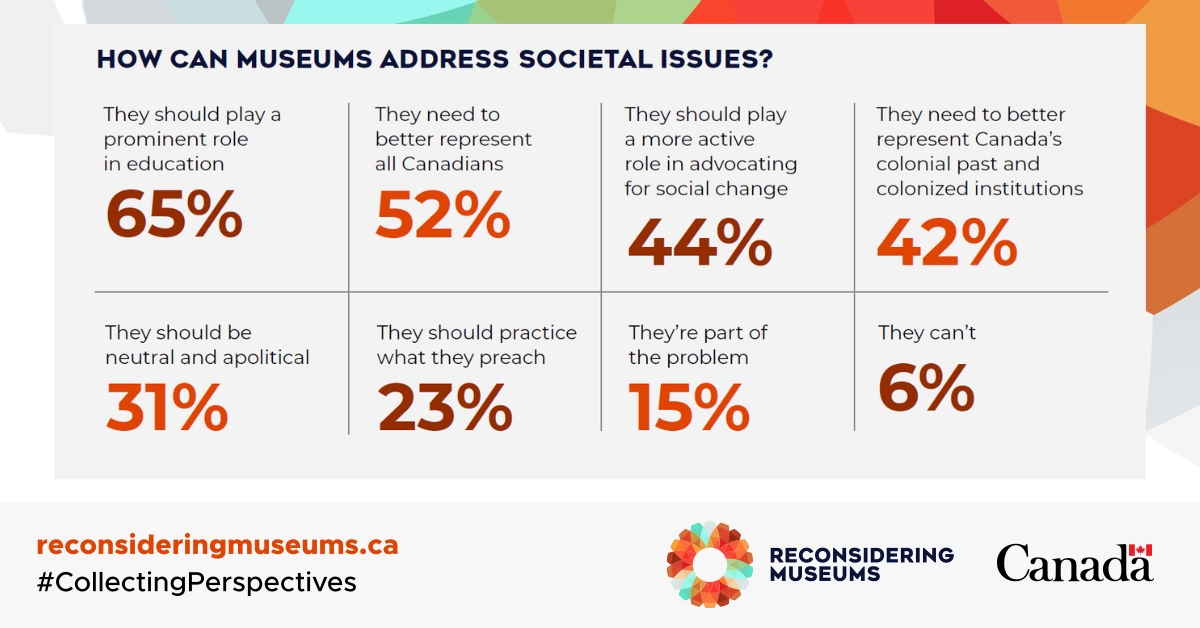What is advocacy?
Advocacy relates to how a museum is
actively working to advance a particular cause or issue to change opinion,
policy, or practice. Within Reconsidering Museums, advocacy is defined
broadly as it can take on many different forms depending on a museum’s
circumstance or place in its community. Every museum will advocate differently for
the various social and environmental issues impacting their community. These
social issues include but not limited to climate change, Indigenous issues and
reconciliation, 2SLGBTQIA+ issues, local community issues, etc. In addition to
advocating for social change, a museum may also wish to advocate for internal
or industry-wide relations such as financial sustainability, increased staff capacity,
Board support, etc.
What is social change?
Social change is the transformation of culture, behaviour, social institutions, and social structures over time. To create positive and lasting social change, it can be beneficial to adopt a systems-change approach that addresses the root cause of a problem, not just the symptoms (see image below). It might seem intimidating for museums to see themselves as capable of effecting social change, but this is something museums have done and can continue to do. Using the systems-change approach, it is easy to see how museums contribute to social change by shifting values, assumptions, and beliefs through education, exhibitions, programming, and community engagement.

Why do museums need to engage in advocacy?
Here’s what Canadians had to say about advocacy and museums in the Museums for Me campaign.

Canadians know museums can address societal issues, that it’s their role to educate the public on such matters, and they value museums for this.
- 94% of respondents agree that museums can address societal issues
- 93% of respondents agree that museums help them understand other cultures and communities
- 88% of respondents agree that museums give us information and perspective on important cultural and social issues
However, Canada is changing, and Canadians want museums to adapt and do more for our changing world, particularly younger Canadians.
- 2 in 5 respondents agree that museums should take a stand in their presentation of exhibits to challenge the status quo
- 65% of respondents agree that museums should play a prominent role in education when it comes to addressing societal issues
- 44% of respondents agree that museums should play a more active role in advocating for social change; 62% of respondents aged 18-34 agree.